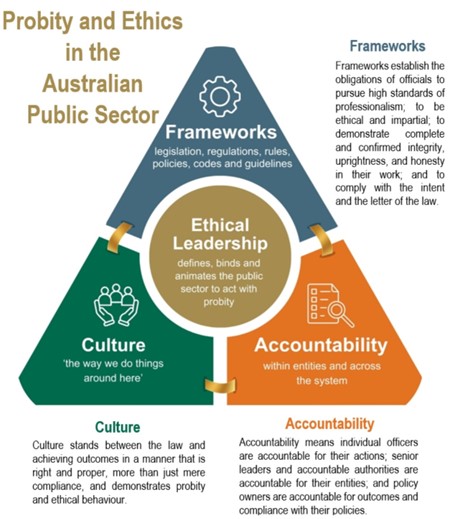The never-ending quest for probity and ethics in the Australian public sector
THE Joint Committee of Public Accounts and Audit has tabled its report into probity and ethics in the Australian public sector, finding the sector too often fails to comply with both the intent and the requirements of legal and regulatory frameworks.
“Complying with the letter of the law while ignoring the intent does not cut it,” Committee Chair, Julian Hill MP said.
“Too often the public sector is falling short of the high standards of professionalism required of it. Risk tolerance for non-compliance is unacceptably high and ‘getting things done’, even if it involves cutting corners, has sometimes become more important than complying with the law.
“In particular, it was concerning to hear during the inquiry that even when officials were found acting contrary to finance law, multiple witnesses and entities referred to a ‘lack of malintent’, to having ‘acted in good faith’, and ‘delivering on decisions of government’. This is plainly and unambiguously wrong.
“Officials in the Department of Health even received corporate ‘congestion busting’ awards for former Minister Greg Hunt’s hospital grants project which breached finance laws. Public money was paid without any apparent legislative authority and in blatant defiance of legal advice.
“Frankly, the committee wishes that breaking finance law was indeed innovative and a new situation, but unfortunately the evidence in this and numerous other inquiries make clear it’s not," Mr Hill said.
“The committee has observed over many years, including through this inquiry, a pattern of persistent resistance to accountability across the public sector. Agency heads do not consistently have frameworks in place to be reasonably confident their officers are acting according to the letter and the intent of the law, and thus demonstrating probity.”
To foster an Australian Public Sector that acts with probity and integrity, the committee concluded that a focus on three critical and interdependent aspects of the system is necessary: frameworks, culture, and accountability.
“The key, however, to ensuring the public sector acts with probity and integrity is overwhelmingly not the rules per se—it is ethical leadership: the ‘golden thread’ that binds and animates the system in a positive direction. Ethical leadership must be demonstrated at all levels, especially by accountable authorities and senior officers,” Mr Hill said.
The Committee made 11 recommendations, including recommendations that seek to embed assurances with regard to probity and ethics in public sector accountability systems and mechanisms.
Under the recommendations, the Australian Public Service Commission (APSC) is to develop guidance with a definition of culture and metrics to build, measure and assess organisational culture as it applies to probity. Further, there should be a new requirement for all entities to develop and maintain an overarching Integrity Framework.
The report can be downloaded from the inquiry website.
ends

 How to resolve AdBlock issue?
How to resolve AdBlock issue? 